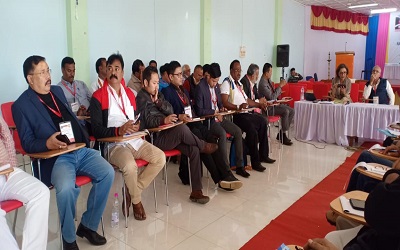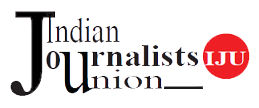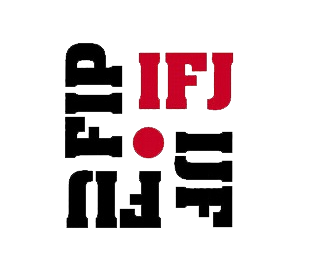Nov 24-25, 2019 : A free and independent press, ethical journalism, safety of journalists, decent working conditions, gender equity are indeed critical issues amongst many others the media fraternity needs to keep a sharp focus on like never before. In fact, it’s like flogging a story to make that impact it deserves. And that is precisely journalists from across the country made a part of their agenda at the National Executive Committee meeting of the Indian Journalists Union in Imphal.
The All Manipur Working Journalists Union (AMWJU) played the gracious host in stirring what should be termed as a historic meeting of the IJU in the North East. In the 30 years of its existence, the IJU had its first President from the region.
Assam’s Geetartha Pathak took over charge as its fourth President in the true spirit of national integration and diversity. The union stepped into an era of democratic functioning or better began a new chapter wherein the feudal mindset or the big brother syndrome that had prevailed had become passé and all States, big or small, would stand on an equal footing and speak in one voice in the organisation to carry forward the mandate of protecting freedom of press and the journalists’ rights. A robust foundation was indeed laid in Imphal.

And there couldn’t have been a better beginning of the two-day meeting in the winter of 23-24th November, with Manipur’s Information and Public Relations Minister Biswajit Singh reinforcing the basic ingredient for a healthy democracy-- a free and independent press. In these trying times, when this very independence is under grave threat, the commitment voiced was more than welcome. At the same time, it would continue to be under watch and guarded, as the job entails.
The press must be a ‘voice of the voiceless’, should play an effective role as the fourth estate, a mediator between the people and government and be part and parcel of taking the country forward and towards a developed society, is how the young and dynamic minister saw the media’s role. More so, at a time when challenges that social media, fake news and hate speech have thrown up globally and need to be addressed. Thus, there was a word of caution. The media must report only facts, maintain a balance in its reportage and desist from sensationalising and creating divisions within the society. Journalism, said the minister is all about dynamism and responsibility and journalists needed to do justice in the various fields they were assigned. Yes, there cannot and shouldn’t be half-hearted attempts as there was no room for complacency.
As it takes two to tango, it was heartening to hear the minister acknowledging the fact that his government too had a responsibility for ensuring the press remains free and that its workforce is given a healthy environment to carry out its duties without fear or favour. Music to the ears, as the IJU and its State affiliates are having to prod governments to see the challenging conditions that journalists have to work, rather struggle under. The Manipur government, he said had already taken measures such as welfare schemes, medical coverage, pension etc, and was now working on proposals of AMWJU and Editors’ Guild Manipur for a Press Park and Press Academy.
Sharing and reiterating the objectives of the IJU, both President Geetartha Pathak and Secretary General Sabina Inderjit said the Union was committed to protect press freedom for only when the media is free and vibrant will democracy thrive. However, there were no two opinions that journalists were facing grave threats from both State and non-state actors. The emergence of right wing and nationalist governments across the globe was a cause of concern and journalists’ safety has become part of a serious debate or rather a top priority. Sadly, India is gaining a notorious reputation as last year the International Federation of Journalists declared it as one of the most dangerous countries in the world for journalists in the backdrop of the rising number of media persons being either killed or attacked both physically and morally. The IJU has been demanding that both the Centre and State governments enact a Safety law and the Imphal meeting gave it a greater push given that impunity against attacks on journalists is becoming a rule rather than an exception.

The National Executive Committee also expressed serious concern over the Central government’s manoeuvre to cut into the roots of press freedom in the country by repealing two vital legislations, Working Journalists and other Newspaper Employees (Conditions of Service) and Miscellaneous Provisions Act of 1955, and the Working Journalist (Fixation of rates of Wages) Act, 1958 that protect the unique character of the profession of journalism. A perusal of The Occupational Safety, Health and Working Conditions Code, 2019 and The Code on Wages has not only sought to equate the ‘fourth estate’ with any other industry, but done away with basic protections of the Act and the Wage Board which provided confidence to journalists to carry out their responsibilities without fear or favour. It is unfortunate that the government was favouring the employers rather than the employees and that IJU and its affiliates would need to keep the pressure on to resist attempts to weaken press.
At the same time, realising the adverse affect that crass commercialisation and competition on the one hand and the growth of media manifold from print to digital was having on the core values of ethical journalism, the IJU felt strongly that it was time for introspection within. While the media is proactive in investigating and highlighting the the shortcomings and corruption within governments and other institutions, it needs to look within whether it is doing its own job honestly. More so, as it is a given fact that the advent and spread of contractual system of employment in the media, has virtually made Wage Board implementations instinct, and forced many a journalist to compromise professionally.
And therefore aptly a special session was held to take into account how to salvage the situation and bring back the glory of the profession as a public service. The journalist today must go back to the basic core values and that every State affiliate must contemplate reviving or setting up a code of ethics for its members to follow. Many a speaker said that the concept ‘there is no free lunch’ was a more sharpened reality but personal aggrandisement was reaching higher levels surpassing earlier trends of distribution of suit lengths, goodies and even envelopes with cash at Press Conferences by organisers for better coverage. It was therefore, all the more critical that to have a code of ethics in every organisation and that if need be there should be naming and shaming of the ‘black sheep.’ There can be no two opinions that the credibility of the media, which has taken a beating, needs to be won back.
The meeting also made a note of the disturbing trend of mass layoffs the media industry is experiencing on the one hand and the challenges that the digital media and working conditions set out. The workforce is no longer permanent, the young are sceptical of unions and therefore the unions would need to think out of the box or adopt policies to get cracking on retaining their relevance and their numbers. A tall order alright but with a dedicated and united team, success by innovation is certain.
The largely male-dominated meeting did once again reiterate its commitment to towards gender equality, which unfortunately continues to be ignored at both the State and national level. While the number of women in the profession has grown manifold, their involvement in unions is bare minimum, or rather dismal particularly in small cities and towns and that leadership of unions need to do more than pay mere lip service. Sate unions must encourage and gain their confidence and one way of doing so would be to set up gender cells, which would provide them a platform to steer their own decisions to meet their needs and requirements.
Organisational matters were a critical part of the deliberations of the NEC, with members and State leadership dwelling at length over unfortunate developments within the Union. But as rightly agreed these had to be dealt internally and not be made a public spectacle. There was no looking back and the key to success of overcoming the numerous hurdles was to deal with them unitedly, not just on the home front but globally too. Imphal reaffirmed the belief ‘united we stand, divided we fall,’ and the foundation that was laid bore optimism all the way. It wrapped up with a big hurrah and thank you to AMWJU team under the leadership of its President Bijoy Kakchingtabam, General Secretary Khwairakpam Naoba Singh and IJU NEC member Asem Bhatka. In Solidarity!




.JPG)
.JPG)
